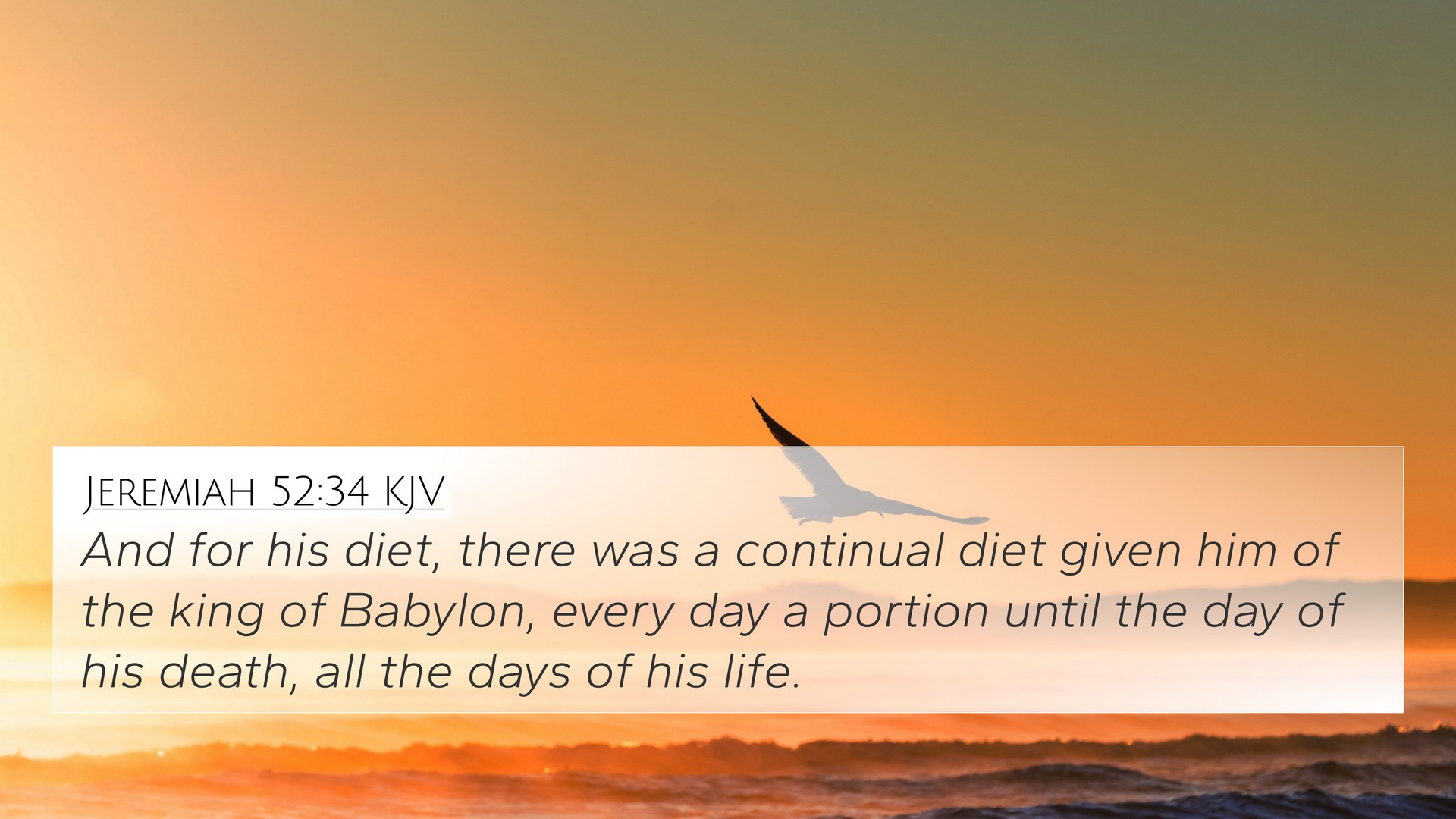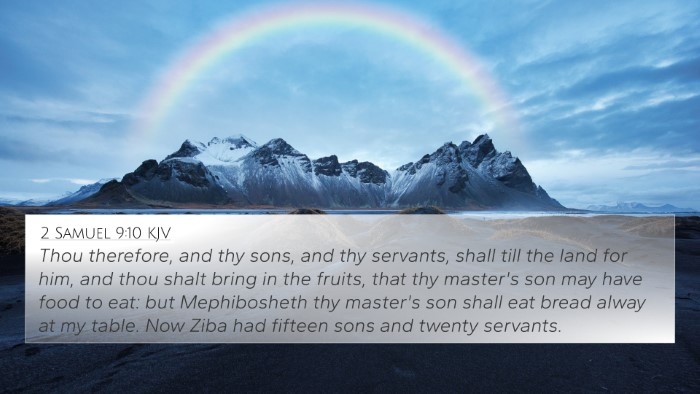Understanding Jeremiah 52:34
Jeremiah 52:34 states, "And for his allowance, there was a continual allowance given him of the king, a daily rate for every day, all the days of his life." This verse pertains to the fate of Jehoiachin, the king of Judah, after his exile.
Significance of Jeremiah 52:34
This passage encapsulates a moment of mercy and restoration following the destruction of Jerusalem and the exile of its people. Jehoiachin, who was once a king, finds favor in the sight of the Nebuchadnezzar, the Babylonian king.
Insights from Commentaries
- Matthew Henry: Henry highlights Jehoiachin's surprising elevation from a prisoner to a position of honor, reflecting God's providence even in dire circumstances. It illustrates the principle that God can provide in unexpected ways, assuring the faithful of His ongoing providence.
- Albert Barnes: Barnes notes how this verse reveals God's graciousness and the fulfillment of His promises, despite the national tragedy of Babylonian captivity. The allowing of resources for Jehoiachin reflects a measure of dignity and sustenance, underscoring divine compassion.
- Adam Clarke: Clarke places emphasis on the symbolic representation of Jehoiachin's life in Babylon as a commentary on hope and restoration. Though he is in exile, the king receives daily sustenance, which Clarke interprets as a form of reconciliation and God's mercy extended to the people of Judah.
Cross-References to Jeremiah 52:34
This verse can be better understood by examining its connections with other scriptural texts. Here are 10 cross-references that elucidate its themes:
- 2 Kings 25:30: This verse also mentions Jehoiachin's release from prison and details his daily provision from the king of Babylon.
- Lamentations 3:22-23: "The steadfast love of the LORD never ceases; his mercies never come to an end; they are new every morning." This passage underscores God's ongoing mercy, akin to Jehoiachin's situation.
- Isaiah 14:3-4: This prophecy speaks of comfort and relief for the people of Israel after their exiles, resonating with the small mercies shown to Jehoiachin.
- Ezekiel 1:2-3: Ezekiel, during the time of Jehoiachin's captivity, showcases the prophetic voice of hope amidst despair.
- Daniel 1:3-4: The exile experience is paralleled as Daniel and his friends are also taken captive, illustrating the broader implications of Jeremiah's prophecy.
- Romans 8:28: This New Testament verse reflects on God's ability to work all things for good, paralleling the hope seen in Jehoiachin’s eventual restoration.
- Jeremiah 29:11: Known for its promise of hope and a future, this verse confirms the idea that even in exile, plans for restoration are present.
- Micah 7:18-19: Here we see a celebration of God’s forgiveness and mercy, highlighting that such grace is available after judgment.
- Acts 15:17: This verse mentions the rebuilding of David's fallen tent, which can relate to the restoration themes surrounding Jehoiachin's narrative.
- Psalm 30:5: This verse speaks of joy coming in the morning after weeping at night, serving as a metaphor for the eventual uplifting of Jehoiachin's spirit.
Thematic Connections
The themes of mercy, restoration, and providence are evident throughout the Bible and connect various verses to one another. Cross-referencing these scriptures enhances our understanding of God’s character and His dealings with humanity.
How to Use Bible Cross-References
Utilizing tools for Bible cross-referencing can deepen your scriptural studies. Here are some methods:
- Bible Concordance: A valuable resource for locating specific verses and their related texts.
- Cross-reference Bible Study: Engaging in studies that connect thematic scriptures can reveal deeper insights.
- Comprehensive Bible Cross-Reference Materials: Utilizing various study Bibles that provide cross-reference systems can enhance comprehension.
Conclusion
Jeremiah 52:34 serves as a poignant reminder of God's enduring mercy and the hope of restoration, even amidst the trials of exile. By cross-referencing related scriptures within the Bible, we gain richer insights into the text, helping us build a robust understanding of Biblical themes.





